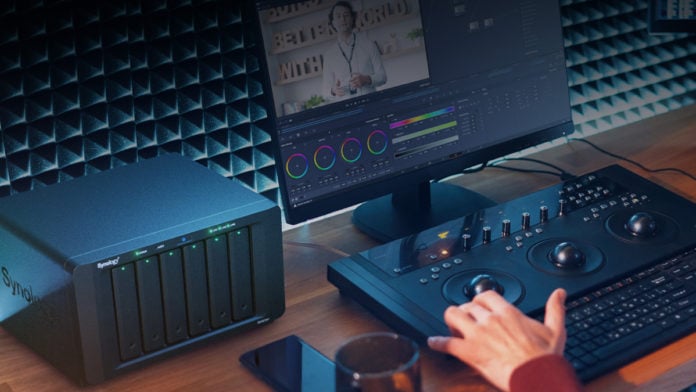Faced with the continuing pandemic, schools and other educational organizations continue to wrestle with the need to hold classes and learning sessions remotely. This necessary digital shift happened suddenly, with schools and students alike struggling to adapt. With little prior experience with how to conduct classes online, course materials became increasingly fragmented across different storage media, physical locations, and cloud-based storage services. These concerns, coupled with the increasing sizes of online learning materials, compound the difficulty and create a barrier to effective online learning.
Network Attached Storage answers many of the problems relating to the challenges of the digital pivot and allows educational institutions and their staff to conduct remote learning activities in a more effective, efficient manner.
Local storage allows for better control, management, and security
To ensure that an educational organization meets industry standards as well as any existing regulations that may exist, the ideal solution is to go local. Local storage allows for better control, management, and security than storing course materials and modules in a whole host of hard drives, online storage, lecturer computers, or flash media, greatly decreasing the likelihood of losing important data with a misplaced external drive or broken computer. With NAS in place, all learning modules can be stored and accessed with ease—no swapping drives, searching for files on multiple computers or relying on third-party cloud services for large files.
This was the case with the Central Unit of Distance Learning in King’s College London. The university signed up for an initiative to provide Massively Open Online Courses (MOOCs) and needed a solution to deal with the greater number of large video files to make MOOCs work as intended, making storing, transferring, and editing these files a challenge for the university’s small distance learning unit. Their prior method, which was a smaller NAS system, coupled with a computer and a large number of external hard drives, created a fragmented system that could not handle their requirements. The solution, both effective and low-cost, was the Synology DS1813+ NAS, which allowed the department to localize file storage, and create redundancies to provide a large, worry-free storage solution that could be accessed easily. It was also a simple solution that users of all levels of tech experience could navigate, decreasing the learning curve, and making adoption much quicker. Users simply had different access and permission levels in the centralized system.

Efficient backup for videos and entire learning modules
Access and data redundancy are more stumbling blocks that have to be addressed in tailoring a storage solution for distance learning. The Jodrell Bank Center for Astrophysics, part of the University of Manchester School of Physics and Astronomy, deals with large volumes of important data, the loss of which would be catastrophic for research and learning. Generating about a terabyte of data monthly, they have very specific needs for volume and redundancy.
Their needs included a system that was bulletproof–extremely resistant to data loss, as well as easy access through multiple device types. The solution was a RAID setup, which backed up nightly, to ensure any changes are saved with redundancy as a safeguard to data loss. The 5-bay Synology DS1512+ was the perfect solution, allowing easy access to hard drives that need replacing, for up to 60TB of storage at a time. Data can also be mirrored to other Synology devices, ensuring live backups can be done easily, without difficulty, on a regular basis–nightly in their case. “With three copies of everything, including two on RAID, we are pretty much bomb-proof,” said Dr. Melhuish, RF Engineer at Jodrell. It’s this kind of data security and ease of access that schools need in these times of distance learning, particularly when dealing with high volumes of data, such as videos, and entire learning modules.
The reliability, expandability, and cost-effectiveness of NAS systems is exactly what a modern center of learning needs in these unprecedented times of digital change. With built-in features and tools that allow students, teachers, and staff alike to store, share, safeguard, and access large amounts of data with minimum effort, Network Attached Storage lets them focus on teaching and learning.
Learn more about Synology NAS: http://sy.to/sliwo
